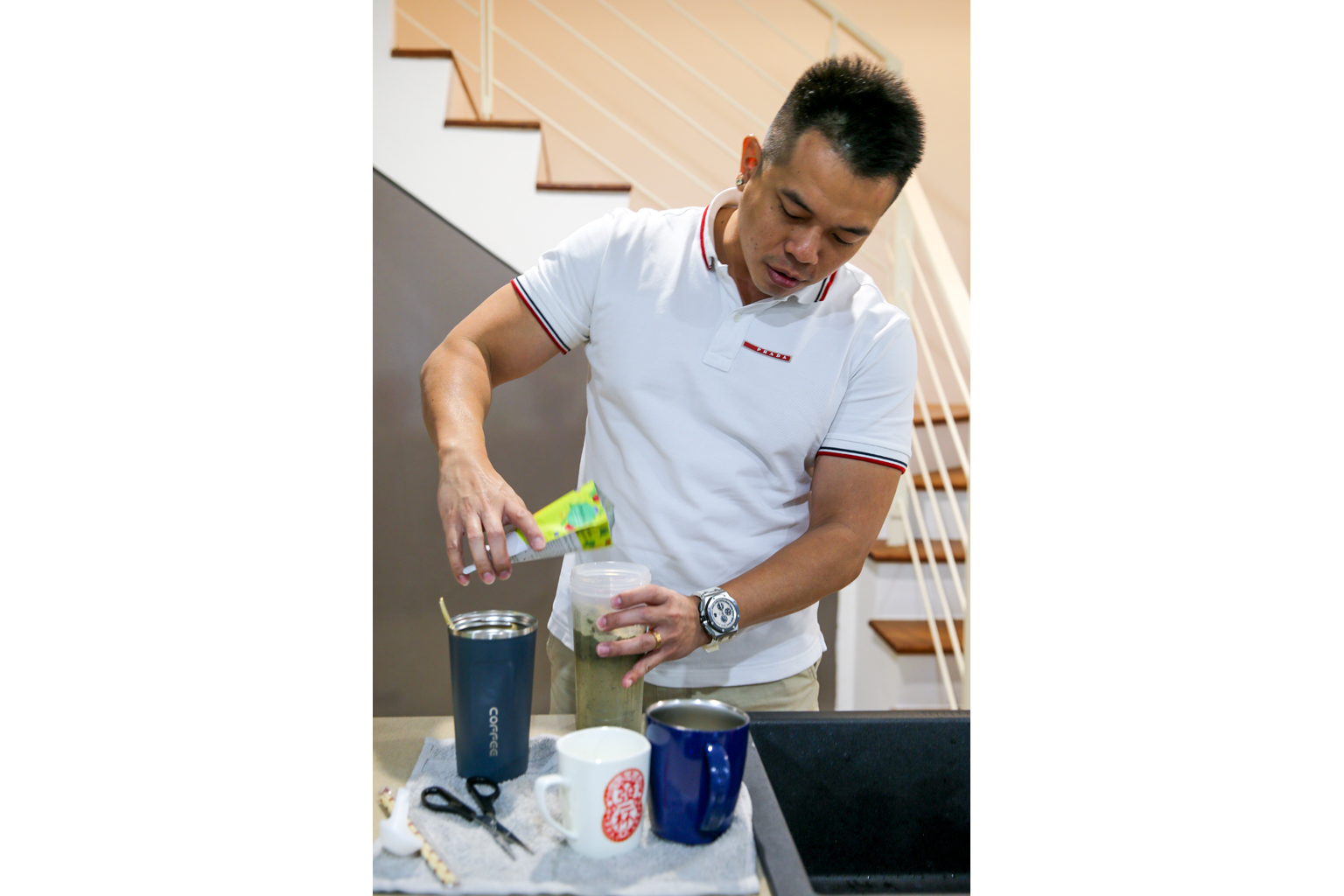Can a shake replace a meal?
Two start-ups report brisk sales of meal replacement shakes during the pandemic, but experts warn that users risk nutrient deficiency or excessiveness
Sign up now: Get ST's newsletters delivered to your inbox

Mr Jason Chew (above), who started taking meal replacement shakes regularly from August last year as he was working from home, now drinks them thrice a week on days when he does not have to go to the office.
ST PHOTO: YONG LI XUAN
Two local start-ups that sell meal replacement shakes have seen a rise in business during the pandemic, as consumers working from home go for fuss-free meals.
One of them, Sustenance, saw its sales jump by 600 per cent from February to October last year and is slated to sell its products on health and beauty retailer Watsons' online platform as well as selected stores later this month. Founded by 30-year-old Gautam Param, the company declined to give absolute figures.
The growth was probably fuelled by the increase in the number of consumers working from home during the pandemic, says Mr Param, who is also a full-time management consultant.
Another local start-up Lembas says, without giving figures, that it had a tenfold increase in sales during phase one of Singapore's reopening last year.
Its founder Alvin Chong, 31, says restrictions on dining out during the circuit breaker and phase one boosted his sales.
The hassle of preparing meals at home pushed consumers to try meal replacement shakes, he says.
"As people's options start to be a little restricted, that's when meal replacements come into play for those who would normally not consider them."
Usually ranging from 200 to 400 calories each, meal replacement shakes are designed to be lower-calorie alternatives to conventional meals.
The ones from Sustenance cost between $5.90 and $7.90 a packet.
Designed to provide the nutrients one should get from a complete meal, most meal shakes contain protein, fibre as well as essential vitamins and minerals that may be lacking in regular meals.
The shakes need only to be mixed with water or milk before they are ready for consumption.
Sustenance and Lembas say they worked with dietitians or nutritionists to come up with their products.
Mr Jason Chew, 36, who works for a tech company, started taking meal replacement shakes regularly from August last year as he was working from home.
Now, he drinks these shakes thrice a week on days when he does not have to go to the office. It helps him to save time as well as money spent on food delivery or dining out, he says.
Meal replacement shakes are not only popular among those working from home, but are also attractive to those who want to lose weight.
Job coach Rachel Tan, 30, started drinking such shakes once a day from last December in order to lose weight for her wedding last month.
"I feel it is effective as it helps me to eat less overall," says Ms Tan, who lost 5kg for her wedding, but has gained back 2kg after going back to her usual diet. "If not for weight loss, I would rather eat my favourite food."
She mixes her shakes with chocolate milk and says it tastes like chocolate oat shake with chia seeds.
While meal replacements may be useful for some, the key to maintaining a healthy weight in the long term is to find an eating pattern that can be followed for life daily, says Ms Tan Ai Shan, principal dietitian at Singapore General Hospital.
"Meal replacement, like any diet, is not a magic bullet to improve health," she adds.
Assistant Professor Dimitrios Spanos, an expert in nutrition, warns that taking meal replacement shakes without clinical guidance may lead to unbalanced diets and deficiency or excessiveness in certain nutrients.
Consumers should read the nutritional labels to ensure that the shakes provide the recommended amounts of nutrients, says the programme leader of Singapore Institute of Technology's Dietetics and Nutrition programme.
But not all start-ups selling meal replacement shakes have had an uptick in business.
Mr Bryan Cutter, 30, who founded SuperHuman in 2017 and started selling such shakes in 2019, says: "Singaporeans are very attached to food and having meals with our friends and family, so taking away this part is a challenge."
It has not seen a rise in sales during the Covid-19 pandemic.
"Meal time is also a time for resting and socialising, so providing something just very functional is something that they might not see the benefit of," he adds.
Correction note: An earlier version of this article reported that Sustenance and Lembas said their products are approved by the Singapore Food Agency (SFA) and Agri-Food and Veterinary Authority of Singapore (AVA). This is not accurate. The SFA does not grant product approval for meal replacements. Additionally, the AVA has not existed as an agency since 2019. Food-related functions under the former AVA have been consolidated into the SFA. We are sorry for the errors.


